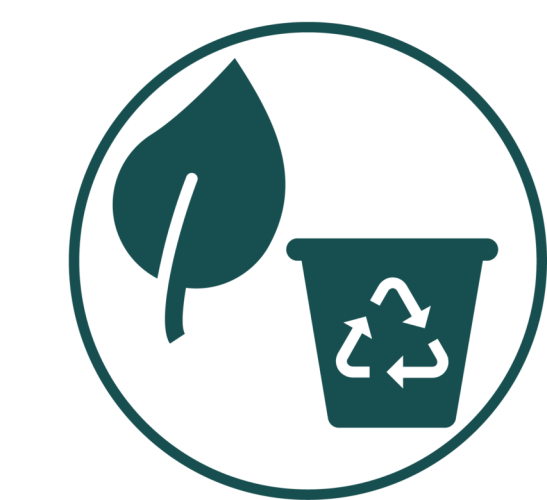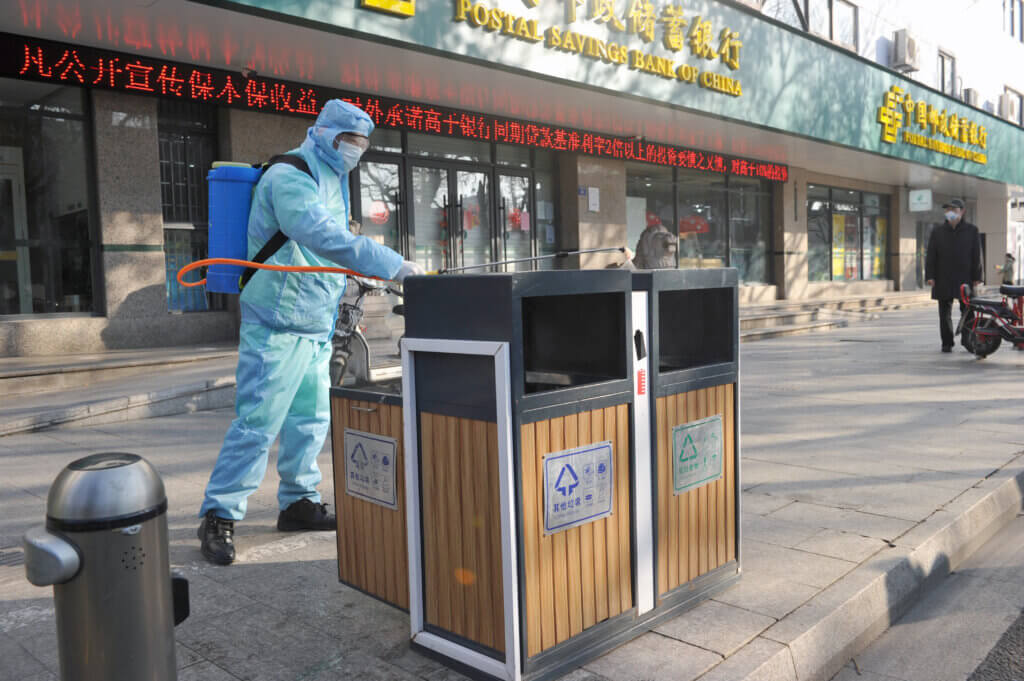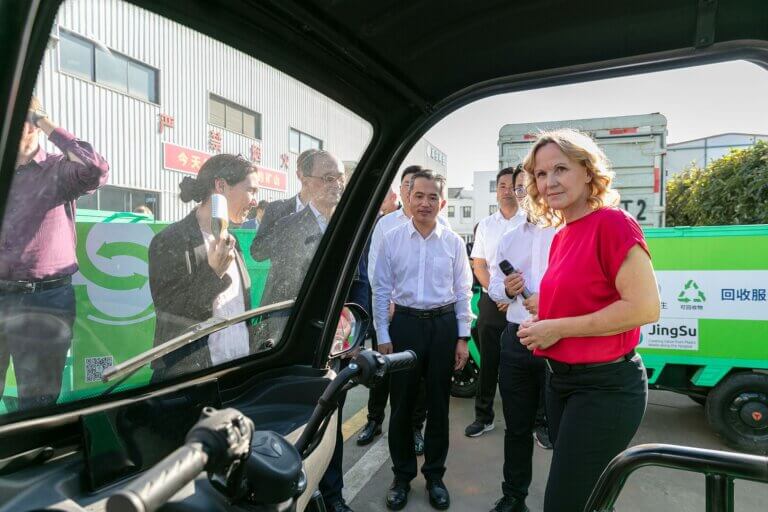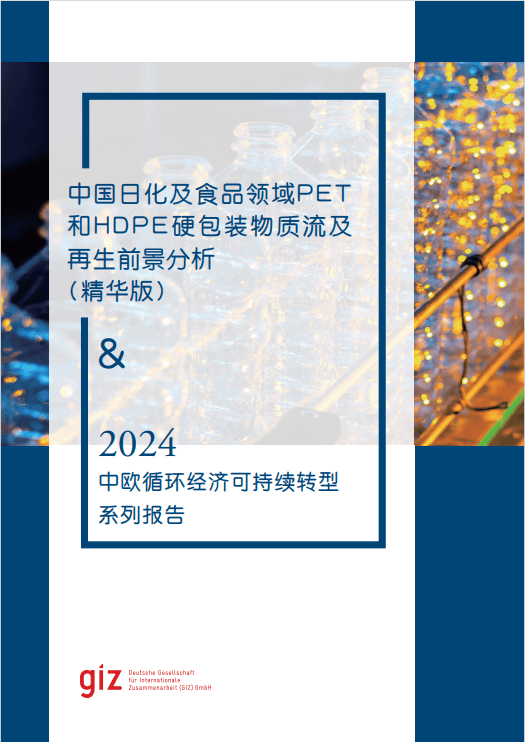As China was hit by the COVID-19 epidemic, its waste sector was amidst the transformation process – from collection-disposal mode towards mandatory waste segregation at source and diversified integrated municipal solid waste management. How under these circumstances China’s waste industry shaped its response to the obstacles brought by the coronavirus – in our overview.
Medical waste challenge
Since the beginning of the outbreak, one of the key tasks of the local authorities was to manage the rapidly growing amount of medical waste. By mid-February, Hubei – the hardest hit Chinese province – has doubled its capacity to dispose medical waste. A staggering increase from around 180 t/d to 373 t/d occurred in less than three weeks. At that point, municipalities in the province were also tasked to collect medical and household waste on the same day it was generated and to treat the waste collected within 24 hours.
By the end of March, capacities of Hubei’s waste sector to manage medical waste reached around 670 t/d – an adequate measure to cope with the 3.4-fold increase in the daily medical waste generation. Capacity to treat medical waste in China overall grew to more than 6.000 t/d from 4.900 t/d in the ‘pre-coronavirus’ times.
New tasks for local governments
Beyond municipalities in Hubei province, other Chinese cities also faced drastic reshuffling of their waste management routine. From installing separate garbage bins for used face masks to treating household waste from communities with suspected COVID-19 cases as medical waste and constantly disinfecting waste collection vehicles – all measures required additional resources in terms of both human and financial capital. During the peak of the outbreak, a so-called health emergency period, nearly 1.8 million employees in the sanitation sector worked round the clock to ensure proper waste management, city cleaning and disinfection. According to the Ministry of Housing and Urban-Rural Development (MoHURD), the workload of sanitation workers doubled during the peak of the coronavirus epidemic.
Nationwide measures
Since the start of the outbreak, local governments in China have been urged to take the following measures:
- In addition to hospitals and medical institutions, to set up special garbage collection containers in centralized quarantine locations or in places where suspected coronavirus patients stay in isolation. The task is to ensure separate collection and transportation of waste from these areas to waste treatment facilities and to guarantee regular disinfection and sterilization measures.
- Cities having waste incineration plants is suggested to transport municipal solid waste (MSW) separately collected from the abovementioned quarantine/isolation areas directly to waste incineration plants to avoid secondary pollution. During the health emergency period waste incineration plants were also used for treating disinfected medical waste in some cities.
- In communities, public institutions and commercial areas, the cities should focus on disinfection and sterilization measures, especially at waste collection points and in public lavatories.
Local responses
Case-study 1: Suzhou
The city of Suzhou, Jiangsu Province, is one of the demonstration municipalities of China IWM NSP and one of the leading cities in China when it comes to municipal solid waste management. Located in Yangtze River Delta in the vicinity of Shanghai, Suzhou is also the national high-tech industrial hub and economic powerhouse with a total population of 10,7 million people (urban districts and counties).
In the face of COVID-19 outbreak, Suzhou implemented the following measures with respect to MSW management:
- Set up more than 11,000 special garbage bins for discarded face masks;
- Introduced separate collection of face masks in key urban areas to avoid secondary pollution, enacting the guidelines of “Collected by designated personnel, transported by designated vehicles and transferred directly from the points of waste generation to waste treatment facilities”;
- Intensified the disinfection and sterilization of public areas as well as of waste management tools and facilities: in Suzhou, 329 waste transfer stations along with 3147 public lavatories are disinfected at least 4 times per day;
- Reinforced MSW management to guarantee daily collection of waste and timely emptying of every garbage bin.

Disinfection measures in Suzhou (garbage bins in public areas, waste collection vehicles, public roads)
© Suzhou Environmental Sanitation Administration Agency
Case-study 2: Bengbu
The city of Bengbu, Anhui province, is another demonstration municipality of China IWM NSP. Being smaller than Suzhou, the city nevertheless has a total population of 3.4 million people (urban districts and counties) and is considered an important industrial center in Anhui Province.
In order to cope with the risks of coronavirus, MSW management response of Bengbu has been as follows:
- Enhance medical checks and strengthen safety measures for sanitation workers, providing enough protective gear such as masks, gloves, protective clothing, goggles etc.;
- Introduce separate collection of used face masks in key urban areas to avoid secondary pollution: Bengbu installed 3087 special collection bins and has been emptying them two times per day;
- Disinfect and sterilize waste collection and transportation vehicles as well as waste transfer and treatment facilities twice per day.

Bins for separate collection of masks and specially designated vehicles
© Bengbu Housing and Urban-Rural Development Bureau
 Disinfection and sterilization for garbage bins, waste collection vehicles, waste transfer station
Disinfection and sterilization for garbage bins, waste collection vehicles, waste transfer station
© Bengbu Housing and Urban-Rural Development Bureau
Case-study 3: Impact on mandatory waste segregation – Shanghai
Shanghai can be considered a special case, since it was the first city in China to implement mandatory waste segregation at source back in July 2019. In the time of the coronavirus epidemic, however, Shanghai waste management system needed to be adjusted again to minimize the risks associated with separate collection and treatment of various waste streams.
Thus, amid the outbreak, Shanghai has introduced the following rules:
- The city suspended separate waste collection for the centrally located neighborhoods, allowing residents to split their waste in two fractions only – wet and dry – instead of the initial four (kitchen waste, recyclables, other waste and hazardous waste);
- The local population in central neighborhoods was asked to disinfect their garbage bags and only fill them by ¾;
- Shanghai hospitals, during the peak of the epidemic, were allowed to stop separating household-like waste from medical waste, focusing instead on frequency and quality of the disinfection measures.
Following gradual recovery from the epidemic, the obligation to split waste into four categories has been reinforced. Despite the changes brought by COVID-19, Shanghai residents managed to achieve high quality of kitchen waste segregation in the first quarter of 2020.
*********************
The city of Suzhou, planning to introduce mandatory waste segregation at source on June 1, is also back on track with regard to public campaigns and awareness raising activities. In mid-March the city outlined its further actions to ensure timely implementation of new MSW routine and published guidelines for residents in Chinese, English and Japanese.
Guidelines by the line Ministry
On March 20, MoHURD stepped in outlining further actions that needed to be taken by the local authorities responsible for waste management in the coronavirus ‘post-emergency’ times. Making emphasis on the adequate protection of employees in the sanitation sector and maintenance of strict disinfection measures, the respective MoHURD’s Notice on Further Improvement of Urban Environmental Sanitation work has called upon the cities to continue implementing waste segregation at source. Beijing and Wuhan specifically, as two of the key 46 municipalities to pilot mandatory waste segregation, were asked to proceed with the respective activities as planned (i.e. Beijing is about to launch mandatory waste segregation on May 1, 2020), but to also enhance safety controls to prevent spread of the coronavirus.
Transforming challenge into an opportunity
If a key message is to be picked from the Notice issued by MoHURD, it is one about the need to perceive COVID-19 as an impulse to strengthen the sanitation sector in China. The document specifically mentions separate collection and treatment of kitchen waste, emphasizing, thus, construction of organic waste treatment facilities, and brings attention to the problem of construction waste itself – focusing on the need to increase its reuse, recycling or ensure safe disposal. Improvement of waste management facilities that appear to be essential for containing an epidemic is another key point of the document which overall proposes a very pragmatic and at the same comforting idea – let us learn from the challenging events to transform our weaknesses into our strengths. Sanitation sector as a ‘backbone’ service for each and every city throughout the world is, of course, included.





